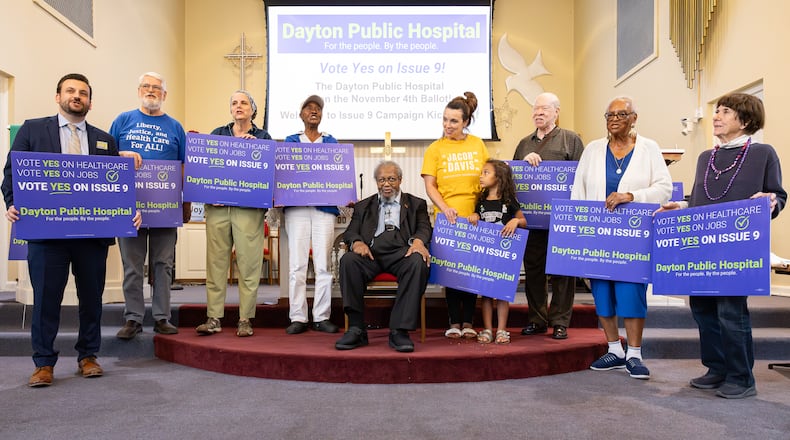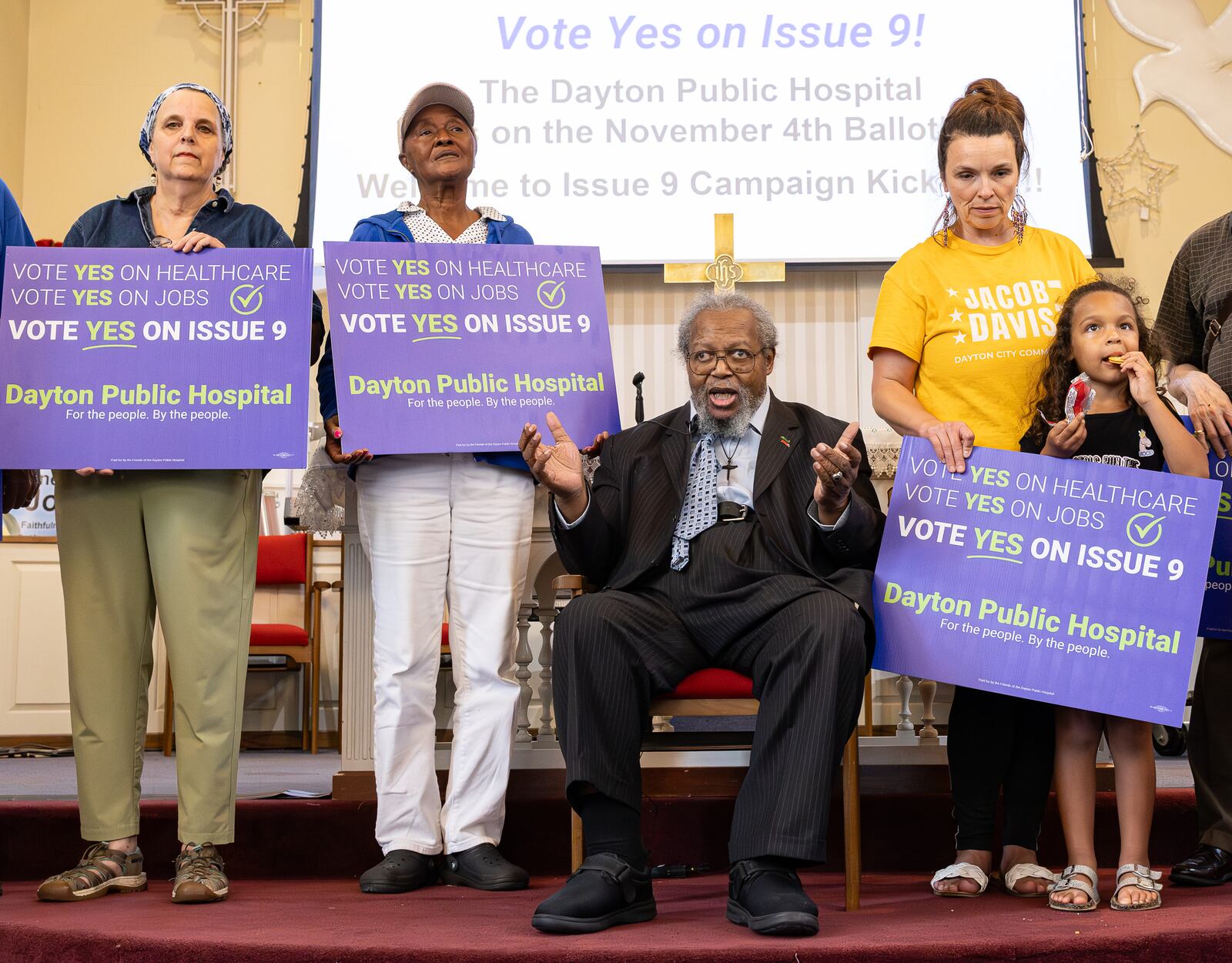“Issue 9 is powered by state law and city ordinance, and it is the duty and responsibility of the mayor, commission and city officials to enforce the legislation,” said Nancy Kiehl, community outreach coordinator for the Clergy Community Coalition.
City officials say they are not exactly sure at this time what comes next because this is unfamiliar terrain, but the law department is studying the matter.
“Given that this is legislation that has never been enacted, there is significant analysis underway to determine a well-informed path of next steps,” said Dayton City Manager Shelley Dickstein.
Opponents of Issue 9 contend that the levy revenue is not nearly enough to pay for a full-service hospital like what has been proposed.
Credit: Bryant Billing
Credit: Bryant Billing
Residents approve
About 58% of Dayton voters on Nov. 4 approved Issue 9, which is a one-mill property tax levy expected to generate about $2 million annually for a new public hospital in West Dayton. The levy will last for a decade, producing about $20 million in revenue over that time frame.
The levy’s passage was the culmination of years of work by the Clergy Community Coalition to come up with a plan to address a shortage of health care services in West Dayton. Coalition members say a new hospital is needed in West Dayton to fill the void created by the closure of Good Samaritan Hospital in the northwestern part of the city in 2018.
Issue 9 appeared on the ballot because canvassers obtained enough signatures from city residents to submit a successful citizens’ petition initiative.
The language of the petition for the ordinance says the hospital must be in West Dayton and the plans should include an emergency department, an intensive care unit, pediatric emergency services, mental health programs, a diagnostic laboratory, an imaging center, a birthing center, outpatient offices and other programs and services.
Bishop Richard Cox, president of the Clergy Community Coalition, says levy funding must be used for building, operating and acquiring land for a public hospital, which the city will own and operate.
Supporters of Issue 9 say the $20 million in tax collections will help attract other partners and funding to the project. Critics have argued that the proposal is highly unrealistic because $2 million annually is a drop in the bucket of the funding needed to construct, staff, equip and operate a full-service hospital.
What’s next?
The citizens’ petition says Dayton’s mayor needs to appoint a hospital governing board with the approval of the majority of the city commission.
The board of hospital trustees will make all the decisions for designing, building and operating the hospital, said Eric Moyer, a progressive political organizer who supported the hospital levy measure and helped craft the language of the citizens’ petition.
The board is supposed to have 11 trustees. The mayor is to serve as the chairperson and the vice chair must be a representative from the Human Relations Council.
Other trustees are supposed to include representatives from community organizations that are focused on civil rights enforcement or health care access, plus city staff who work in the departments of finance and planning, neighborhoods and community development.
One trustee has to be a community member who has not worked in health care administration, while another must be an architect with experience in “trauma-informed design.”
Moyer said state law appears to require the mayor to make the board appointments within 60 days of the Ohio Secretary of State’s official canvass of the election results, which should occur within the next few weeks.
City in charge
Levy funding won’t be collected until 2027, so land acquisition or facility construction cannot take place for a while, Moyer said.
The board of trustees will need to take steps to identify other partners and funding sources, possibly such as the county, the state, the federal government and private donors, coalition members said. They say the hospital board of trustees should be formed in early 2026, and they would like to see a needs assessment completed to help inform the board’s plans and decisions.
“We would like to see it happen tomorrow, but that is not realistic,” said Kiehl. “This project will take patience, and because Issue 9 revenue is spread out over 10 years starting in 2027, we know progress will be slow.”
Although the official role of the organizers of the Issue 9 campaign ended when the measure was put on the ballot, some of those community members want to be involved in the process moving forward, Kiehl said.
“We will be reaching out to Mayor-Elect Shenise Turner-Sloss to discuss our ideas and the next steps, but it is not in our hands anymore,” she said.
Turner-Sloss, a city commissioner who defeated incumbent Mayor Jeffrey Mims Jr. this month, told the Dayton Daily News that a strong majority of voters have made it clear that they want a public hospital and the city needs to try to make that happen.
“This is an opportunity to reimagine what we want in our communities,” she said. “This is also an opportunity for us to look at health care through a different lens.”
Commissioner Matt Joseph opposed Issue 9 because he said the backers had no real plan to create a new hospital, and the levy funding is extremely inadequate to pay for a full-service medical facility.
After the election, Joseph said, “I believe (Issue 9’s passage) shows how badly people need better health care, that they were willing to take a chance that something like this could provide it, no matter how unlikely.”
About the Author


